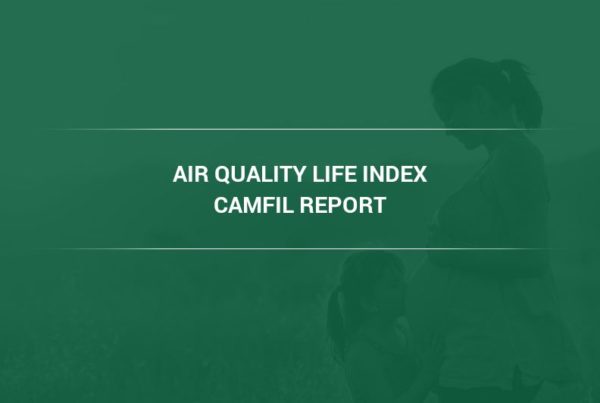There is a direct relationship between outdoor and indoor air quality. When the quality of outside air gets worse, indoor air gets worse shortly afterward since air is drawn into buildings through HVAC systems. The good news is high-quality air filters can limit the amount of airborne contaminants brought into a building. Air filters can break the direct relationship between outdoor and indoor air quality.
As scientists, researchers, and clean-air experts continue to investigate the sources and solutions of harmful air pollution, more and more studies are addressing the link between Indoor Air Quality and Outdoor Air Quality.
While the link between these two concepts seems obvious at first glance, the result of the relationship between them plays a much larger role in human health than previously realized.
How Outdoor Air Pollution Can Affect Indoor Air Quality
Contaminants from dust to pesticides to construction debris can be small enough to linger in a region’s air for days, weeks and even months. Unfortunately, industrial air filters are then forced to contend with those contaminants and expected to remove more pollutants from the air supply than the filtration designs intended.
While industrial air filters might be effective in removing some of the contaminants, they are only a single component in a larger and more complex HVAC system that provides ventilation into a building.
There are plenty of ways for contaminated outdoor air to get inside the home or office. Poorly installed or undersized air filters are one obvious path, but even situations such as a cracked window or propped door can introduce outdoor air into the building. The return air ducts in the system circulate the air back to the filters, putting extra strain on the HVAC system in the process.
Why Air Filter Quality is So Important
In our modern era, things like fossil fuels, home heating, electric power generation, and motor vehicle exhaust can introduce a frightening amount of pollutants into the air, even in areas that are considered to be more rural. However, air pollution has likely been a problem for much longer than that, as wildfires and volcanic eruptions can also be the cause of dangerous air pollution.
The quality and performance of an air filter matter. Modern air filters are designed to be effective on a wide range of contaminants, but specialized air filters are available that address specific areas of concern.
Understanding the Importance of Indoor Air Quality
When air with any of these pollutants finds its way into a building, there is a risk those pollutants may be inhaled by the inhabitants and could result in health issues.
EPA Indoor Air Quality Standards
As ambient air pollution increases in developing parts of the world like China and India, the chances of a severe health crisis (Like the “killer fog” in London, 1952) are greatly increased. In areas with severe pollution and poor air filtration standards, indoor areas can be a health risk.
The creation and adoption of EPA indoor air quality standards are necessary to protect not only from indoor-exclusive pollutants, but also those found in the air around us.
About
Camfil is the world leader in air filtration and clean air solutions, with 30 production plants and R&D centers in the Americas, Europe, and the Asia-Pacific region. For more information, visit us online at www.camfil.us or call us toll-free at 888.599.6620.
Media Contact:
Lynne Laake
Camfil USA Air Filters
T: 888.599.6620
E: Lynne.Laake@camfil.com
F: Friend Camfil USA on Facebook
T: Follow Camfil USA on Twitter
Y: Watch Camfil Videos on YouTube



